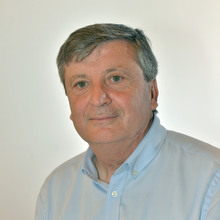Let’s talk about you: what is your background, what do you teach, and what are your research interests?
My name is Luigi Perissinotto and I teach Philosophy of Language at Ca' Foscari. At least since my university years, language has been at the heart of my study and research interests and of my many, though often haphazard, readings. This led me in those years and in the years that followed to devote considerable space in my studies to those philosophers and philosophical attitudes that have made language one of their main concerns, if not the exclusive focus. Hence, the decision to devote first my dissertation and then my PhD thesis to Ludwig Wittgenstein, a philosopher who, especially at the time I was at university, did not enjoy, at least in Italy, the fame he later acquired; but hence also my interest in the various and multiple ways in which language has been studied, on the one hand, by analytic philosophy and, on the other, by post-Heideggerian and hermeneutic philosophy. From this point of view, I have never identified with a specific 'philosophical school', but have always tried to move 'freely', even, I hope, with the necessary rigour, between different approaches and research orientations.
Which philosophers have shaped your philosophical research?
Over the years, several philosophers have shaped and guided my philosophical development. During my university years, I must first of all mention the teaching of Emanuele Severino. I have never been, as we students liked to say, a ‘Severinian’, but I think I have learned a great deal from his books and lectures. But, of course, my education owes a great deal to Mario Ruggenini, who was first one of my teachers and then my dissertation supervisor. For more than thirty years I discussed philosophy with Ruggenini with passion and intensity, learning more than I sometimes wanted to admit and always feeling free to be myself when discussing with him. I feel the need to mention at least two other names: Carlo Sini, who was the director of my PhD thesis and who showed me new and unprecedented paths and scenarios, between phenomenology and pragmatism, and Diego Marconi, who has always been for me, as well as a friend, an example of philosophical research capable of combining passion and argumentative precision. But, of course, I could (and should) continue the list, mentioning Paolo Leonardi, Umberto Galimberti, Paolo Legrenzi, Salvatore Natoli, Luigi Vero Tarca, Tullio De Mauro, Donald Davidson. But the more I add names, the more I run the risk of unfair oversights.
Have you always known that this was going to be your path?
Philosophy was not my first and undisputed choice; I hesitated for a long time between philosophy, physics, mathematics, statistics and architecture. I don't know if there was something common to all these fields and disciplines, but I must admit that even now, after so many years, I still think (with no regrets, however) not only of what I learned and got by choosing philosophy, but also of all that I didn't learn and get by not choosing, say, mathematics or physics. Even university teaching and research were not obvious choices for me. Not only because the university career was, and still is, anything but easy, but also because I was never convinced that philosophical research, with its long timescales and uncertain or elusive results, was really for me. That said, I am still happy that I finally chose philosophy first and then university.
The area you have always wanted to be involved in but have not yet had the opportunity to explore?
In fact, there are a great many areas, in philosophy alone, that I would have liked to cover. For example, I feel (and know) that my skills in logic are partial and limited. If I could go back, I would give more space in both my education and my research to logic. The same applies to epistemology, although in this area my knowledge and skills are perhaps less weak and incomplete than in logic. Indeed, especially in the last few years I have devoted a lot of time and study to epistemological issues, especially around discussions of (epistemic) scepticism and relativism. I have also often felt the need to expand and explore the history of philosophy, especially mediaeval philosophy (one of my biggest and most obvious shortcomings).
What do teaching and researching mean to you?
I find it difficult to answer this question without uttering clichés. I would just say that teaching means, for me, at least two things: (a) to share as much as possible with my students the avenues, the difficulties, the hesitations and doubts, but also the discoveries and the ‘illuminations’ of philosophical research; (b) to make them understand that any research requires, besides passion, effort, dedication and patience and that, in this field as in many others, shortcuts are, if not always, certainly often just dead ends. After all, the same applies to research: there is no true research if a topic or problem does not excite us, but also if it does not disturb us and almost torment us. But passion is not enough; we need effort and dedication and, above all, we must never forget that, even when we study or write alone, in research we are never alone because we must always respond (according to the various meanings of responding) to others.

